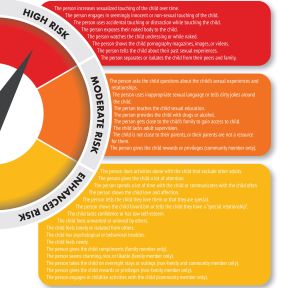
Law and Crime
The question of why people choose to commit crimes—often in the face of severe consequences—is at the root of criminal psychology, a branch of study that focuses on the intentions and behaviors of those who plan and carry out criminal acts. On the other hand, psychology itself has, over the years, engendered significant changes in how legal experts think about the crime and the law, as well as changes in how the mentally ill are treated by the criminal justice system.

Criminal psychology does more than provide a glimpse into a criminal's psyche. It also plays a role in how the law is applied. In the courtroom, legal practitioners require a grasp of defendants' motivations and actions in order to render fair judgment. Forensic psychologists, as well as other mental health professionals, are often called upon to help clinically evaluate the mental states of people who break the law.
Psychology plays a role in police work as well. Criminal profilers—who aim to determine likely suspects through a mix of crime-scene analysis, investigative psychology, and other behavioral sciences—are often forensic psychologists or criminal anthropologists. Law enforcement agencies often rely on these experts to get inside the head of a potential culprit by identifying the perpetrator's likely personality type, lifestyle habits, and quirks.
Criminal psychologists study the behaviors and motivations of criminals. As such, they may conduct research to determine why crimes occur, consult with police departments to identify suspects, or provide expert testimony in court cases. Criminal psychologists may also engage in criminal profiling.
Criminal psychology findings may help identify suspects, potentially allowing authorities to prevent future crime or catch a serial criminal. On a larger scale, understanding what motivates criminals to break the law—whether poverty, personality, or otherwise—is necessary for creating the societal conditions that may allow them to stop.
For many routine crimes, police primarily rely on physical evidence and witness interviews to identify suspects. For more severe crimes or when evidence is lacking, they may use criminal profiling, a tool that incorporates research on personality, motivation, antisocial behavior, and other factors to create a “profile” of the offender to aid in the search.

Exactly why people commit crimes, and what could deter them from doing so in the future, is of great interest to psychologists and law enforcement officers alike. So far, extensive research points to a complex mix of genetics, personality, life circumstances, and environmental factors.
Psychologists also undertake research—often working with individuals who have committed crimes or are the victims of crimes—to understand how criminals choose victims, whether it’s possible to protect oneself from certain types of crime, and what legal professionals and policymakers can do to stop crimes before they occur. But though great progress has been made in understanding the criminal psyche, there’s much that remains unknown about certain criminals’ motivations, as well as an element of randomness in who is victimized and who isn’t.
Some individuals commit crimes out of necessity; others are driven by anger, rejection of authority, a manipulative personality, or psychopathic tendencies. While stereotypes that all mentally ill people are prone to crime is not accurate, there are instances where mental illness—such as psychosis, substance abuse, or severe bipolar disorder—could influence someone to break the law.
There is some evidence suggesting that criminals choose victims, at least in part, based on how they look or move. One study, for instance, found that criminals were more likely to label someone a potential victim if they appeared noticeably different from those around them or was moving in distracted, unusual ways.
Basic safety tips—like paying attention to one’s surroundings and staying in well-lit areas whenever possible—can help someone avoid being the victim of a crime. On a psychological level, working to project calm assuredness, moving with purpose, or blending into a larger crowd may help someone reduce their chances of being victimized.

Psychological and psychiatric findings have had a significant influence on the legal system, particularly since the beginning of the 20th century. Among significant changes include the push towards deinstitutionalization of the mentally ill, which coincided with the development of more advanced psychiatric medications and a greater understanding of the causes and potential treatments for mental disorders. In addition, the decriminalization of homosexuality in the U.S. was likely significantly influenced by the growing psychological acceptance that homosexuality—and more recently, being transgender—are not mental disorders.
In addition, legal professionals—including lawyers, police officers, and judges—now regularly consult with psychologists to assess defendants’ state of mind and provide treatment if necessary. This branch of psychology, known as forensic psychology, has grown exponentially in recent years.
Psychology and the law both examine human behavior—the first seeks to understand it, and the second seeks to regulate it where necessary. Psychologists study people’s needs and desires, why they follow laws, and how they understand fairness and justice—and these findings, in turn, can help policymakers write laws that are in the public interest.
They may be deterred by possible consequences, see the law as a legitimate authority, obey the law so as to better coordinate with others around them and society at large, or they may do it to signal their beliefs or morality. For most law-abiding people, their reasoning is likely a combination of the above factors.
Yes, though such changes rarely happen quickly. One recent example is California’s law mandating later school start times. This law was directly tied to psychological and neurological research on the developing brain that highlighted the need for children—and teenagers in particular—to get more sleep.
It does appear that changes to the law can precede larger shifts in societal attitudes, though the direction of cause-and-effect is not entirely understood. One study, for instance, found that antigay attitudes reduced much more rapidly after marriage equality laws were passed than they had before.
Lawyers may use psychological findings to aid in jury selection, selecting jurors whose personalities or backgrounds make them well suited to assess the case in favor of the lawyer’s client. Lawyers may also seek psychological assessments to argue that a client is legally insane. To learn more, visit the Forensic Psychology page.
Though eyewitness testimony is often a key element of criminal trials, psychology has consistently demonstrated that it cannot always be relied on. Eyewitnesses may misremember key details—or even invent new ones. Despite this, a seemingly credible witness can be highly persuasive; thus, legal professionals continue to use them, particularly when other evidence is lacking.
Memory is imperfect even in the best of circumstances. Eyewitness memories, like other memories, tend to become shorter, less detailed, and biased toward what the witness thought they saw, rather than what they actually saw. While some eyewitness memories are merely inaccurate, others may be altogether false, as psychological researchers like Elizabeth Loftus have convincingly shown that false memories can be implanted.
Once-forgotten memories that are “recovered” play a complicated role in the legal system. Repressed memories may be submitted as evidence in certain locations. However, because false memories can be implanted and it’s often difficult to distinguish true memories from false ones without corroborating evidence, it’s rare for charges to be filed based on them alone.
The legal system generally grants those with mental illness the right to object to treatment (with some exceptions, such as when the individual has committed a violent act). It also limits involuntary hospitalization only to cases where the patient is in immediate danger of harming themselves or others. But though great strides have been made since the days of institutions and demonization of the mentally ill, the legal system still has a ways to go.
Families of the mentally ill can seek involuntary hospitalizations if they can show that there is immediate danger to the individual or others. Barring that, however, there may be little they can do to legally intervene in their care. Family members may wish to connect with a mental health-focused legal expert for guidance and assistance.
U.S. police officers are regularly called in response to mental health crises. However, they often lack proper training and may respond in inappropriate or dangerous ways that result in mentally ill individuals being imprisoned or even killed—sometimes when no crime was committed. Today, many activists are seeking to shift this responsibility to psychological professionals.
Anti-bias training has received significant attention in recent years, especially as concerns about racial biases in policing have grown. However, there is little evidence that implicit bias training reliably reduces bias; indeed, some researchers have found that certain kinds of bias training may actually increase bias in daily life.














